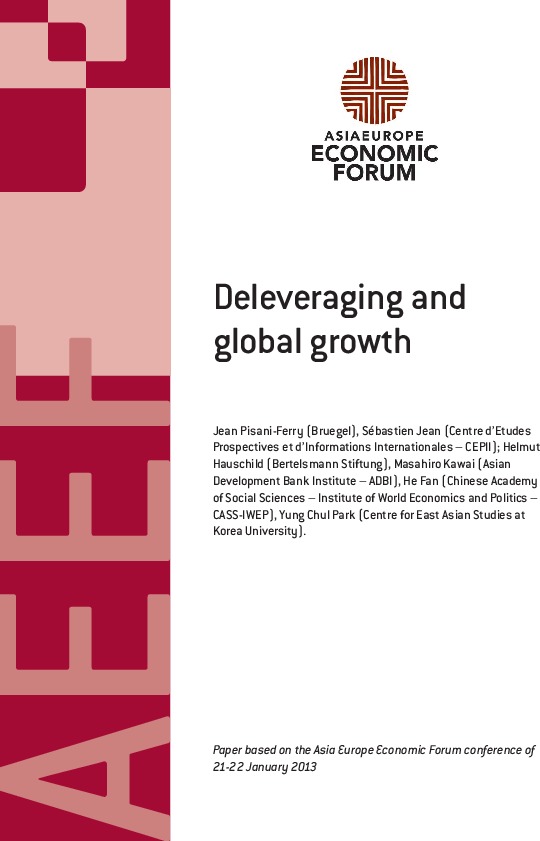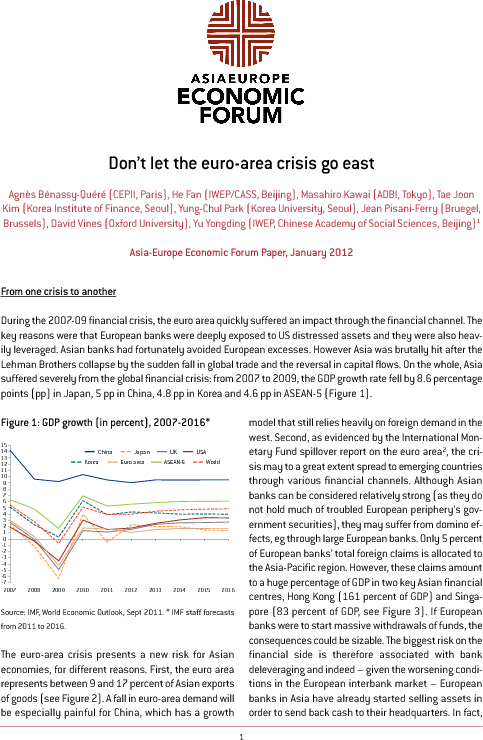External authors

Masahiro Kawai
Professor, University of Tokyo, and Senior Research Advisor, RIETI
Dr. Kawai began his professional career as a Research Fellow at the Brookings Institution. He then served as an Associate Professor in the Department of Political Economy of The Johns Hopkins University, and as a Professor of Economics at the Institute of Social Science of the University of Tokyo. He also served as Chief Economist for the World Bank's East Asia and the Pacific Region, as Deputy Vice Minister of Finance for International Affairs of Japan's Ministry of Finance, and as President of the Policy Research Institute of Japan's Finance Ministry. Afterwards he was Special Advisor to the Asian Development Bank (ADB) President in charge of regional economic cooperation and integration in 2005-2006, and Dean and CEO of the Asian Development Bank Institute (ADBI) from 2007 to 2014. Dr. Kawai assumed his current position in April 2014.
In addition, Dr. Kawai has been President of the Japan Chapter of "Economists for Peace and Security" since 2002. He is also a Councilor of the Bank of Japan, a Senior Research Advisor to the Research Institute of Economy, Trade and Industry, a Special Research Advisor to the Policy Research Institute of Japan's Ministry of Finance, and Vice President of the Council on East Asia Community.
Dr. Kawai's recent publications focus on Asian economic integration. He has published a number of books and more than 150 academic articles on open-economy macroeconomic issues, regional economic integration and cooperation, and the international economic system. His recent co-edited books include: Asian Regionalism in the World Economy: Engine for Dynamism and Stability (Edward Elgar, 2010); Asia’s Free Trade Agreements: How Is Business Responding? (Edward Elgar, 2011); Asia and Policymaking for the Global Economy (Brookings Institution Press, 2011); Implications of the Global Financial Crisis for Financial Reform and Regulation in Asia (Edward Elgar, 2012); Monetary and Currency Policy Management in Asia (Edward Elgar, 2012); The Global Financial Crisis and Asia (Oxford University Press, 2013); The Political Economy of Asian Regionalism (Springer, 2014); Reform of the International Monetary System: An Asian Perspective (Springer, 2014); A World Trade Organization for the 21st Century: The Asian Perspective (Edward Elgar, 2014); and Renminbi Internationalization: Achievements, Prospects and Challenges (Brookings Institution Press, 2015).
Dr. Kawai holds a BA in economics from the University of Tokyo and an MS in statistics and a PhD in economics from Stanford University.

